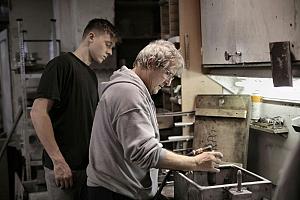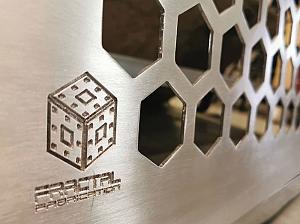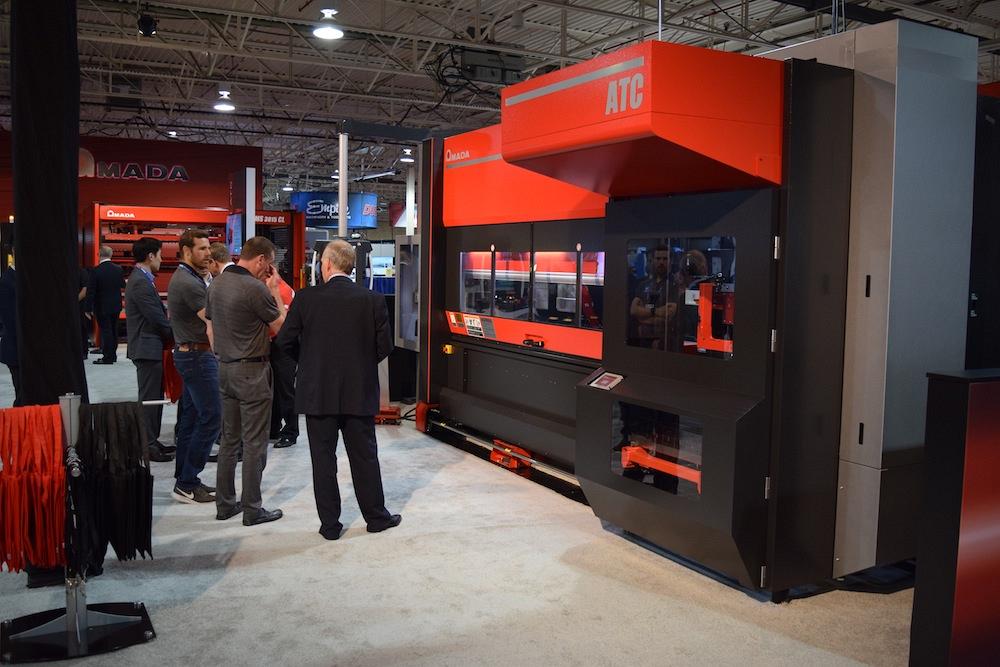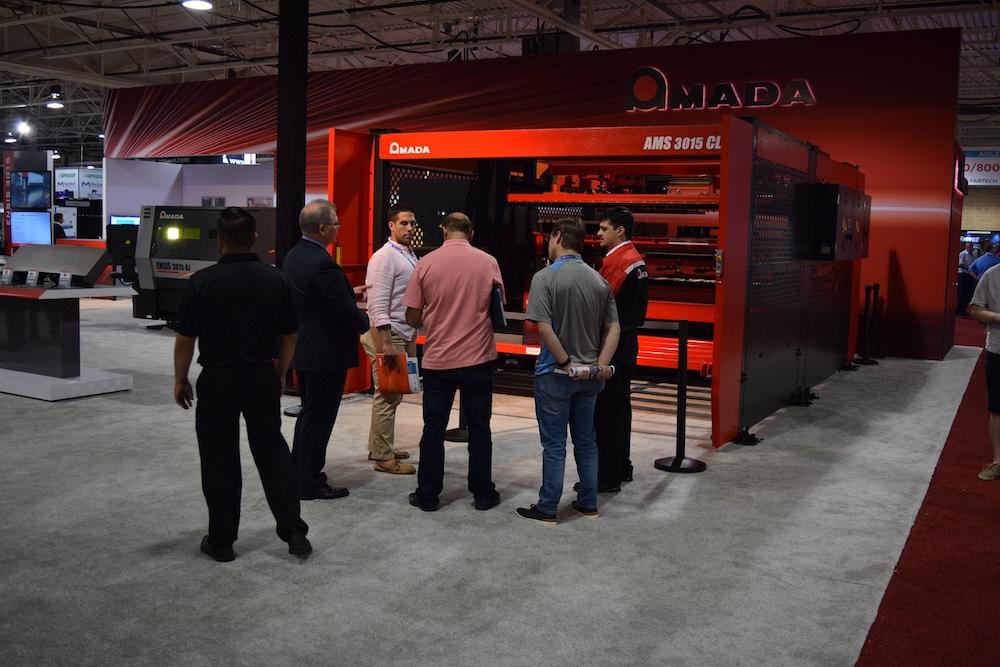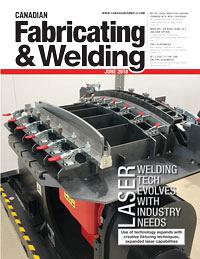Editor
- FMA
- The Fabricator
- FABTECH
- Canadian Metalworking
FABTECH keynote encourages Canada to look beyond North America to build manufacturing strength
APMA President Flavio Volpe discussed the challenges of free trade and tariffs
- By Rob Colman
- June 19, 2018
- Article
- Fabricating
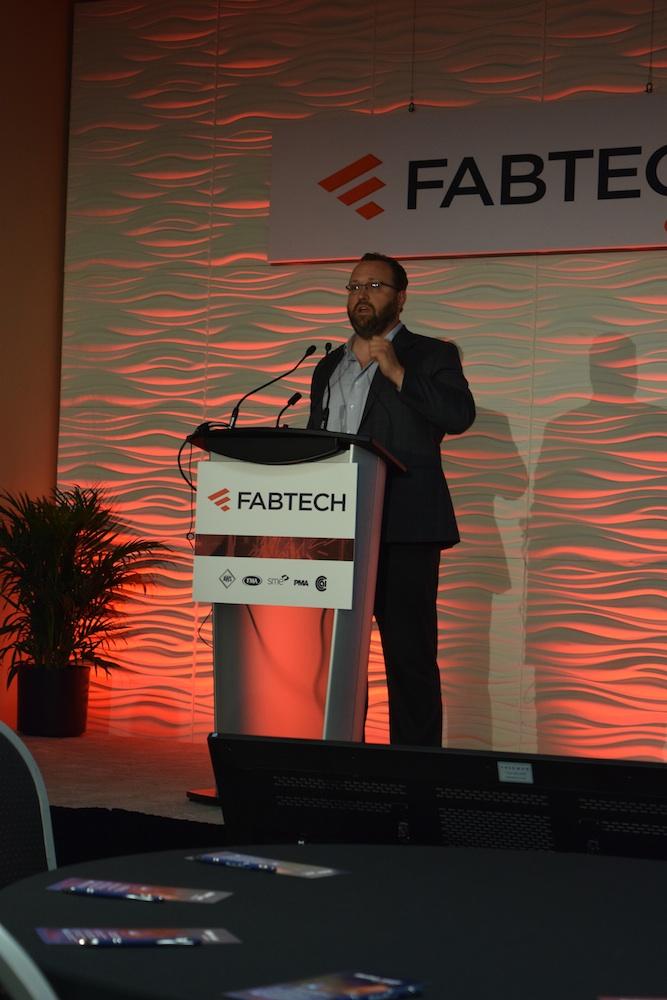
Keynote speaker Flavio Volpe, president of the APMA, provided valuable insights into how Canada can promote its manufacturing skills in the future.
FABTECH Canada proved to be a busy and enlightening show. Attendees had the chance to see some of the latest and greatest machine tools available in the market, test out and see demonstrations of the latest welding machines and automation systems, and to explore what’s new among consumables and abrasives manufacturers.
Some of the highlights included new maintenance support programs, software advances, and advanced automation systems. See the slideshow below to get a peek at just a few of these innovative technologies.
Among the many conference sessions available, one of interest was Flavio Volpe’s keynote address on the first day of the show. Volpe is president of the Automotive Parts Manufacturer’s Association (APMA) and his topic was “Manufacture and Trade: Can Canada Do Both?”
One of Volpe’s biggest concerns is the perception of manufacturing among those in Canada’s government and financial sectors.
“I hear people saying, ‘Flavio, [automotive manufacturing] is yesterday’s industry, you’ve got to get with it.’” The inference is that Canada should be involved on the coding side of vehicle manufacturing more rather than the actual building of the automobile. “The problem is, you write the code for the Chrysler LX program, you win that contract and it’s amazing. But how many people are you going to hire once you’ve done that? Not many. This room of people is already 10 times what you might hire. The fact is that someone is going to hire somebody to make those cars. So if we say we’re going to concede that space because we’re going to be code writers or sensor makers, someone is still going to make those cars. There are a lot of countries breathing down our necks to make those cars. The Trans-Pacific Partnership (TPP) is all about Vietnam and Malaysia wanting to make those cars. If you want to stay in that business you have to decide you want to stay in that business.”
As Volpe sees it, agreements like the TPP are all about what a country is willing to give up to create a new market for their goods. The question ends up being, what could we lose in the manufacturing sector? The fact is, it could be a lot.
Volpe was quite vocal about his reaction to the imposition of tariffs on Canadian vehicles and auto parts by the U.S. government.
“The President probably does not understand that a tariff is a tax on consumption for your own people that you hope is going to change the buying behavior of those people for a strategic objective that you probably have,” he said.
But he goes on to say that there doesn’t seem to be a strategy in this move that makes any sense.
“One hundred per cent of the House of Representatives and one third of Congress is up for reelection in the November mid-terms. The pro-trade party in the U.S. is the Republican party. [The president’s decision] is putting Republicans behind the eight ball. He is using a national security regulation to impose $8 billion in charges on the U.S. consumers who buy American cars that have 60 per cent U.S. content because he doesn’t like the price of milk in Windsor?”
Volpe was positive about Prime Minister Justin Trudeau’s reaction to the tariffs, although he stressed that any effect on discretionary purchases such as U.S. bourbon and orange juice will have comparatively little impact in the long term.
Ultimately, Volpe believes we should use the U.S.’s protectionist actions in recent days as encouragement to attract up-and-coming auto makers from elsewhere to consider Canada as a home for automotive production in North America. He suggested that this should be a key stipulation in any free trade talks with China. They are interested in our natural resources; in return we should be able to stipulate that they make a commitment to bring an SAIC Motor plant to Canada.
The challenge overall, which was noted by Volpe on a couple occasions, is that Canada must commit to wanting to encourage and grow our manufacturing industry. As was noted above, it would appear that both government and the service sector require further education on the importance and value of keeping manufacturing jobs in Canada.
About the Author

Rob Colman
1154 Warden Avenue
Toronto, M1R 0A1 Canada
905-235-0471
Robert Colman has worked as a writer and editor for more than 25 years, covering the needs of a variety of trades. He has been dedicated to the metalworking industry for the past 13 years, serving as editor for Metalworking Production & Purchasing (MP&P) and, since January 2016, the editor of Canadian Fabricating & Welding. He graduated with a B.A. degree from McGill University and a Master’s degree from UBC.
subscribe now


Keep up to date with the latest news, events, and technology for all things metal from our pair of monthly magazines written specifically for Canadian manufacturers!
Start Your Free Subscription- Trending Articles
BlueForge Alliance partners with Nuts, Bolts & Thingamajigs to develop Submarine Manufacturing Camps

Portable system becomes hot tech in heat treatment
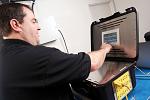
Orbital tube welding webinar to be held April 23
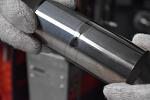
Cidan Machinery Metal Expo 2024 to be held in Georgia May 1-2

Corrosion-inhibiting coating can be peeled off after use
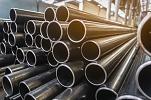
- Industry Events
MME Winnipeg
- April 30, 2024
- Winnipeg, ON Canada
CTMA Economic Uncertainty: Helping You Navigate Windsor Seminar
- April 30, 2024
- Windsor, ON Canada
CTMA Economic Uncertainty: Helping You Navigate Kitchener Seminar
- May 2, 2024
- Kitchener, ON Canada
Automate 2024
- May 6 - 9, 2024
- Chicago, IL
ANCA Open House
- May 7 - 8, 2024
- Wixom, MI





